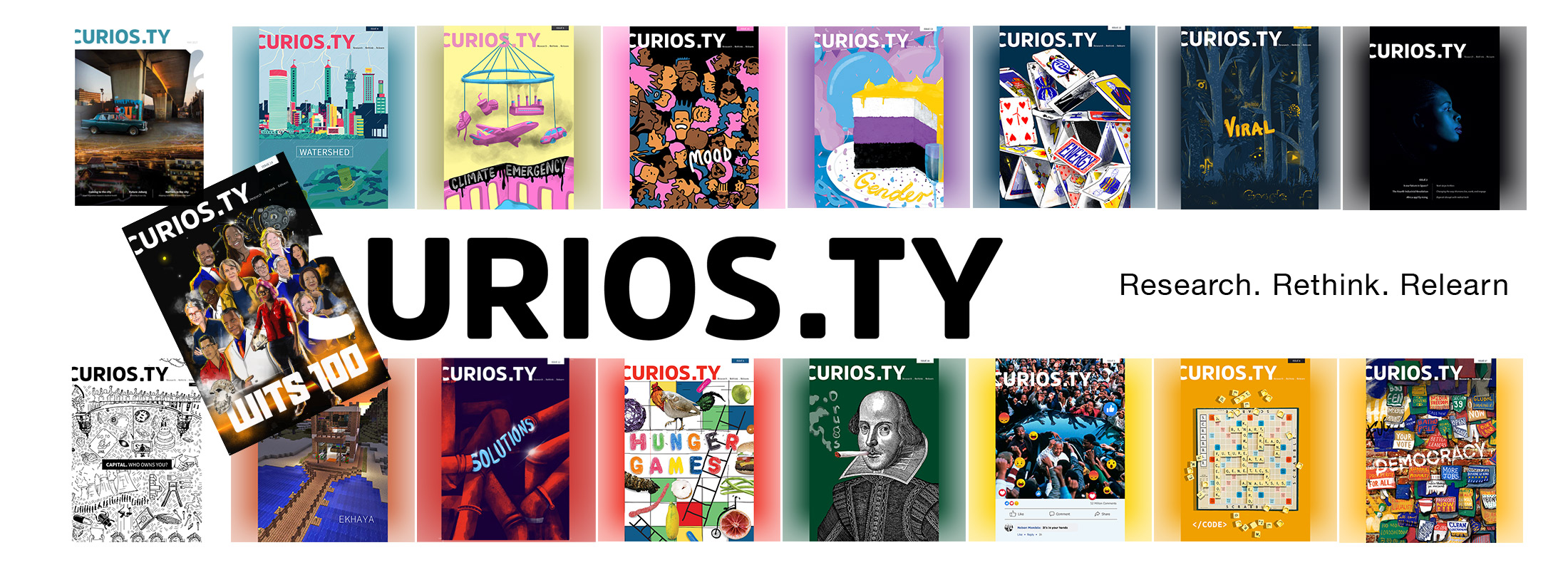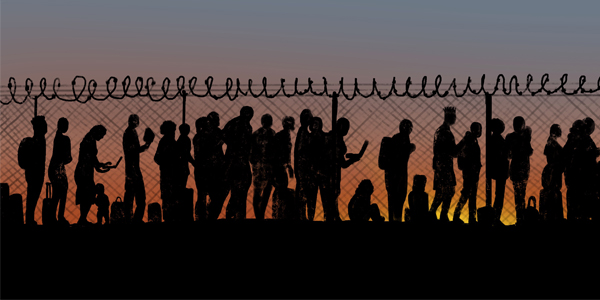
Playing the migration blame game
- Marcia Zali
Pushing a nationalist agenda and fuelling xenophobia is politicians’ way of disguising the causes of South Africa’s economic woes.

South Africa’s so-called porous borders and the right to free movement within the country have led in recent years to a rise in nationalism and an increase in anti-migrant rhetoric. Political parties as well as citizen organisations have driven campaigns and staged protests aimed at intimidating migrant workers and other foreigners living in the country.
Some political parties have specifically targeted citizens of neighbouring countries who come to South Africa, claiming that they take up local resources and jobs, and use the issue in their election campaigns to gain voters.
By contrast, a number of South Africa’s neighbouring countries have in recent years benefited from relaxed border controls and visa restrictions and have seen their economies benefit enormously from the free movement of people, goods and money.
Scapegoating as a distraction
“The scapegoating and demonisation of migrants merely draw people’s attention away from the true source of South Africa’s problems and erodes democracy while putting the welfare of many people – both our own citizens and foreigners – at risk,” says Professor Loren Landau, senior migration researcher at the Wits African Centre for Migration and Society (ACMS).
"Migrants are not the source of any of South Africa’s challenges. There are too few to make a substantial impact on employment or crime, and they have nothing to do with corrupt officials, water cuts, or Eskom,” he says.
Landau explores how mobility on the African continent, particularly in respect of South Africa, is reshaping politics within communities, with a focus on the emerging political subjectivity, political authority, and governance regimes.
While the founding values of South Africa’s Constitution include the protection of human dignity, as well as equality and the advancement of human rights and freedom for all, migrants in the country have faced the persistent violation of their rights, including violent and sometimes deadly outbreaks of xenophobia, which could easily lead to a challenge of our democracy.
Landau says that visas have proven to have limited success in removing genuine security threats to
the country, while greater restrictions on labour rights only tend to bolster informal markets in ways that suppress wages and create poor labour conditions.
Free movement in a free market benefits everyone
“Visa restrictions have economic, political, and security dimensions. Where there are no legitimate economic or security risks, allowing people to move at lower costs (financially and in terms of time) is generally better for everyone,” he says.
South Africa’s borders have always been open to migrant labourers, most of whom historically worked in the mines. Government policies such as the Zimbabwean Exemption Permit give Zimbabwean nationals permission to live, work and study in South Africa, says Dr Johannes Machinya, Lecturer in the Wits Department of Sociology who has conducted several studies that looked at migration control and labour migration between South Africa and Zimbabwe.
A recent bilateral agreement between South Africa and Lesotho which grants Basotho nationals a 90-day visa further solidifies South Africa’s official stance on migration, especially among Southern African Development Community (SADC) countries.
However, while these visas allow migrants with valid travel documents into South Africa, Machinya says that they have also led to informal and unregulated labour practices.
“Ninety-day visas are given on condition that the bearer does not work in South Africa. This, in a capitalist system, leaves these people vulnerable and open to being exploited, and they don't have anywhere to run,” he says.
Down the work chain, South African citizens are not spared from the ripple-effect of having a “competitive” job market because they too can end up being vulnerable to unfavourable employment conditions.
Migrants have rights too
“An effort should also be made to sensitise migrants to their employment rights and inform them about institutions such as the Commission for Conciliation, Mediation and Arbitration where they can seek recourse from unfair labour practices whether they have work permits or not,” says Machinya.
While there is a perception that immigrants use up local resources, Wits ACMS Associate Professor Jo Vearey, coordinator at the Migration and Health Project Southern Africa, says that there is no evidence showing that migrants are a burden on state resources.
“Evidence shows that health migrants from neighbouring countries mostly come into South Africa to get the medical care that they need before returning home. This is why it is important to hold the government and politicians accountable when they try to use migrants as a political tool to cover up their failures, because this is what fuels the anti-migrant sentiment in our communities,” she explains.
Easing the tension
The project aims to improve responses to the health and well-being of migrants in the SADC region through generating and communicating knowledge. A report released by the ACMS shows that migrants, refugees and asylum seekers often face structural or indirect violence when attempting to access healthcare through the country’s public health sector.
To rectify the situation, Landau believes that migration control practices and policies should be improved. The combined belief of the ACMS researchers is that a more balanced, rights-based, and empirically informed policy discussion is needed to help ease tensions between neighbours and to protect the fundamental human rights of all who live in the country.
“Strengthening bodies like the South African Human Rights Commission, increasing advocacy and fostering partnerships that will advance the rights of migrants, implementing inclusive campaigns in the communities, upholding the existing laws, and holding the State accountable for the poor implementation of existing policies, are some of the measures that can be used to uphold and advance the rights of migrants,” says Vearey.
- Marcia Zali is a freelance writer.
- This article first appeared in Curiosity, a research magazine produced by Wits Communications and the Research Office.
- Read more in the 17th issue, themed: #Democracy, we turn to our academics and professional staff for their research, perspectives and commentary on both the progress and shortcomings in our democracy, and democracies elsewhere.

